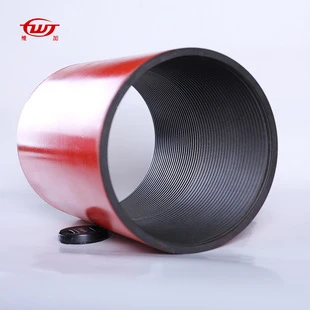- Afrikaans
- Albanian
- Amharic
- Arabic
- Armenian
- Azerbaijani
- Basque
- Belarusian
- Bengali
- Bosnian
- Bulgarian
- Catalan
- Cebuano
- Corsican
- Croatian
- Czech
- Danish
- Dutch
- English
- Esperanto
- Estonian
- Finnish
- French
- Frisian
- Galician
- Georgian
- German
- Greek
- Gujarati
- Haitian Creole
- hausa
- hawaiian
- Hebrew
- Hindi
- Miao
- Hungarian
- Icelandic
- igbo
- Indonesian
- irish
- Italian
- Japanese
- Javanese
- Kannada
- kazakh
- Khmer
- Rwandese
- Korean
- Kurdish
- Kyrgyz
- Lao
- Latin
- Latvian
- Lithuanian
- Luxembourgish
- Macedonian
- Malgashi
- Malay
- Malayalam
- Maltese
- Maori
- Marathi
- Mongolian
- Myanmar
- Nepali
- Norwegian
- Norwegian
- Occitan
- Pashto
- Persian
- Polish
- Portuguese
- Punjabi
- Romanian
- Russian
- Samoan
- Scottish Gaelic
- Serbian
- Sesotho
- Shona
- Sindhi
- Sinhala
- Slovak
- Slovenian
- Somali
- Spanish
- Sundanese
- Swahili
- Swedish
- Tagalog
- Tajik
- Tamil
- Tatar
- Telugu
- Thai
- Turkish
- Turkmen
- Ukrainian
- Urdu
- Uighur
- Uzbek
- Vietnamese
- Welsh
- Bantu
- Yiddish
- Yoruba
- Zulu
casing collar
Casing Collar An Integral Component in Oil and Gas Drilling
In the world of oil and gas exploration, the efficiency and safety of drilling operations are paramount. As drilling technology advances, so do the components that ensure these operations are carried out effectively. One such component that plays a crucial role in the overall integrity of a drilling system is the casing collar.
What is a Casing Collar?
Casing collars are critical components in the casing string, which is a series of pipes that are inserted into a borehole to stabilize it and prevent the walls from collapsing. The casing string prevents contaminants from entering groundwater and ensures that the drilling fluid does not escape into the surrounding rock formations. Casing collars are specifically designed to connect individual sections of casing and provide structural support.
Typically made of high-strength steel, casing collars can withstand the immense pressures and abrasive conditions present deep underground during drilling operations. Their design allows them to provide effective sealing between casing sections, which is vital for maintaining the integrity of the wellbore.
Functions and Importance
The primary functions of casing collars include
1. Structural Support Casing collars provide the necessary strength and stability to the entire casing string, ensuring it can withstand the harsh conditions of the subsurface environment. 2. Fluid Control They help control the circulation of drilling fluids, ensuring that these fluids do not leak into surrounding formations. This is crucial for maintaining well integrity and preventing contamination of groundwater supplies.
3. Torque Transmission Casing collars transmit the rotational force from the drilling rig to the casing string. This function is essential when rotating the casing during the drilling process.
4. Sealing Mechanism By providing a secure connection between casing sections, casing collars help create a seal that prevents fluid migration along the annulus, which can compromise well integrity.
casing collar

Types of Casing Collars
Casing collars come in various types to meet the specific needs of different drilling environments. Common types include
- Regular Collars These are standard collars used in most drilling applications, providing basic structural support and fluid control. - Float Collars Designed with one-way valves, float collars allow drilling fluids to pass through while preventing backflow, which is particularly useful during the casing installation process.
- Production Collars These are specifically designed for production wells, ensuring that hydrocarbons can flow efficiently from the reservoir to the surface.
- Intervention Collars Used primarily for maintenance and intervention operations, these collars may have specialized features that allow tools to be deployed safely.
Installation and Maintenance
Proper installation of casing collars is essential to ensure the longevity and efficacy of the casing string. During the drilling operation, casing collars are welded or threaded to the casing pipe sections, and the installation process must be meticulously executed to prevent any leaks or failures.
Regular maintenance and inspection of casing collars are also critical, particularly in mature wells where settling or shifting can occur. Non-destructive testing methods are often used to assess the integrity of collars and detect any potential issues before they become serious problems.
Conclusion
Casing collars are indispensable components in oil and gas drilling operations. Their role in providing structural integrity, controlling fluid movement, and ensuring safety cannot be overstated. As the industry continues to evolve, the design and materials used in casing collars will likely advance as well, further improving the efficiency and safety of drilling operations. Understanding the importance and functionality of casing collars is vital for professionals in the field, as they contribute significantly to the success of drilling projects and the overall health of the oil and gas industry.
-
Tubing Pup Joints: Essential Components for Oil and Gas OperationsNewsJul.10,2025
-
Pup Joints: Essential Components for Reliable Drilling OperationsNewsJul.10,2025
-
Pipe Couplings: Connecting Your World EfficientlyNewsJul.10,2025
-
Mastering Oilfield Operations with Quality Tubing and CasingNewsJul.10,2025
-
High-Quality Casing Couplings for Every NeedNewsJul.10,2025
-
Boost Your Drilling Efficiency with Premium Crossover Tools & Seating NipplesNewsJul.10,2025







